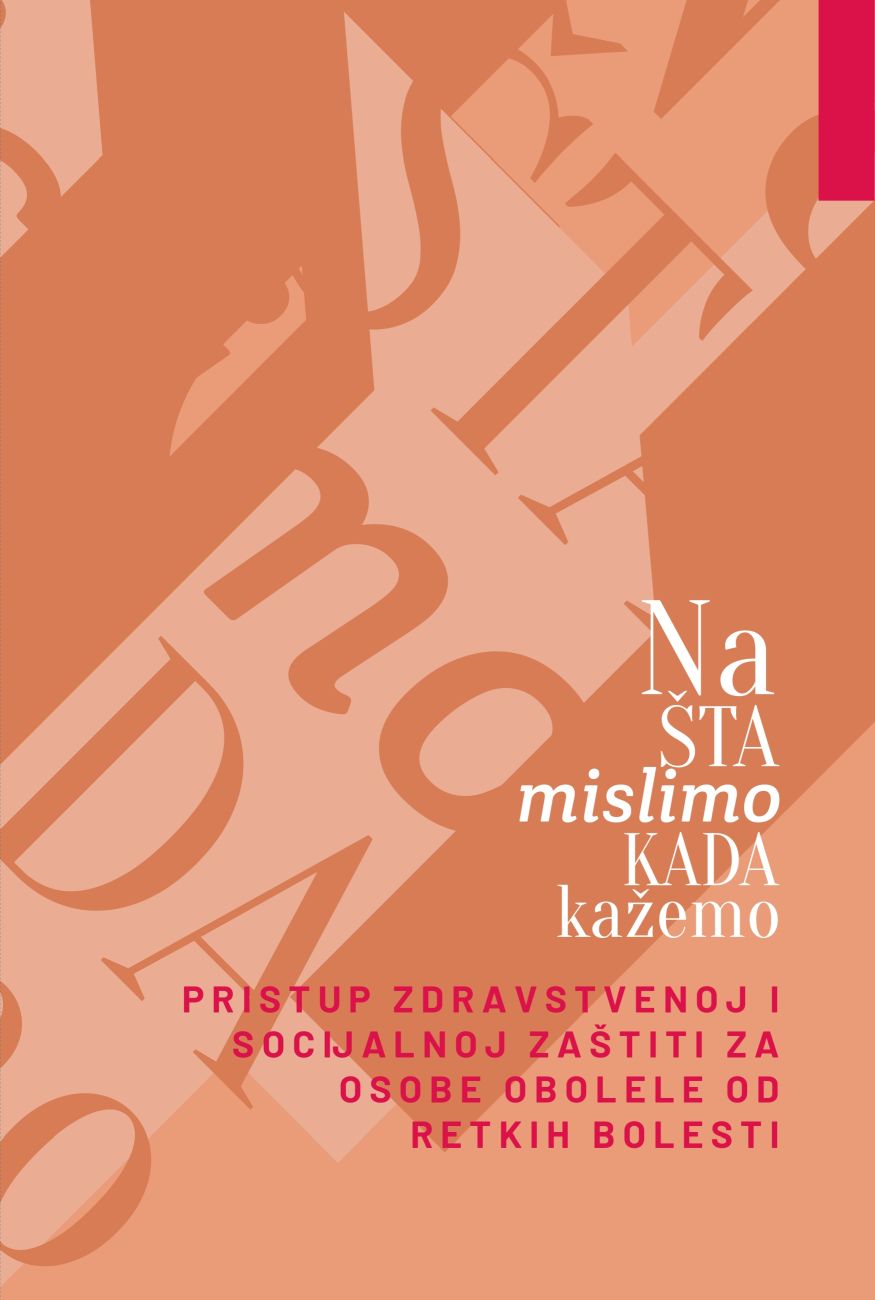
Na šta mislimo kada kažemo… Pristup zdravstvenoj i socijalnoj zaštiti za osobe obolele od retkih bolesti
SDGs: SDG 03, SDG 07 Author(s): Marko Milenković , Isidora Jarić, Miloš Milenković Thematic Area: Active Citizenship and Democratic Institutions, Philanthropy, Solidarity, and Care Published: 2023 ISBN: 978-86-82324-36-2 Pages: 24 Language: Serbian Publisher: Institute for Philosophy and Social Theory, University of Belgrade Tags: book | More DetailsThis publicationexplores the current status and necessary steps to improve the healthcare and social services for individuals suffering from rare diseases in Serbia. The research focuses on the challenges faced by individuals living in rural areas and those with limited access to medical care due to the decentralized nature of the Serbian health system. The document highlights the existing disparities in healthcare delivery, especially for rare disease patients who require specialized expertise that is often limited to major urban centers. The authors suggest that despite the rarity of individual diseases, the collective burden of rare diseases is significant, affecting millions in Europe and globally. These diseases are often chronic and multisystemic, necessitating coordinated, long-term healthcare interventions and robust social protection systems.
Policy recommendations in the report emphasize the importance of decentralizing healthcare services and introducing specialized institutions like Rare Disease Centers. These centers should be integrated within the broader healthcare and social protection systems, ensuring patients’ rights and dignity are prioritized. Additionally, the authors call for the creation of strategic documents to guide the development of a sustainable healthcare model for rare disease patients and their families. They also propose a systemic approach to identifying and supporting civil society organizations that provide services to this vulnerable population.
By addressing the urgent needs of rare disease patients, this publication aligns with the Sustainable Development Goals (SDGs), particularly SDG 3 (Good Health and Well-being) and SDG 10 (Reduced Inequalities), and is relevant for Serbia’s ongoing EU integration process, which emphasizes social inclusion and equitable healthcare access. The recommendations also intersect with the EU chapters related to public health and social protection.
Back
